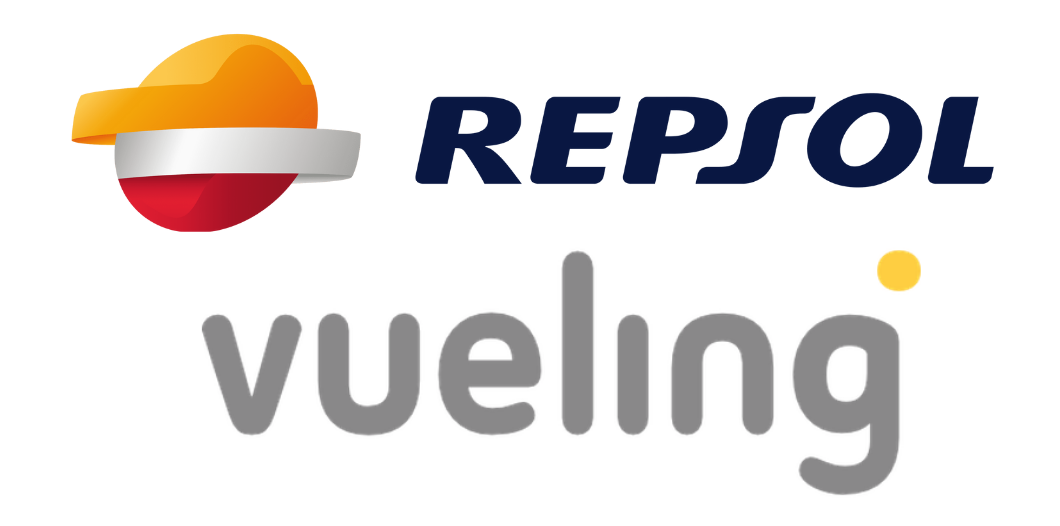- Repsol and Vueling today completed the airline’s first flight with fuel of sustainable origin. The flight was made on occasion of the beginning of the Tourism Innovation Summit in Seville, which will analyze sustainability and innovation in the tourism sector.
- Operated with the new generation Airbus A320neo, the flight avoided 2.5 million tons of CO2 thanks to improved energy efficiency and the use of biofuel, constituting another step towards the decarbonization of aviation.
- The two companies have signed a collaboration agreement to create a working group to advance the introduction of sustainable fuel in the airline's day-to-day operations.
- Aena supports this initiative and is working on collaborative projects to promote sustainable fuel production with the aim of encouraging its use by Airlines.
- Repsol, a pioneer in the manufacture of sustainable fuels in Spain, has supplied the biofuel used on the flight, produced from sustainable vegetable oils at its Tarragona Industrial Complex.
- With this first flight, Vueling is making progress in its commitment to alternative aviation fuels that are produced from fully sustainable raw materials such as urban waste or biomass.
Vueling, an airline of IAG group, today completed the airline’s first flight using sustainable fuel, on the Barcelona-Seville route. Repsol, a pioneer in the manufacture of these kind of fuels in Spain, has supplied the SAF (Sustainable Aviation Fuels) used in the flight, produced at its Tarragona Industrial Complex using biomass. The company has also produced a similar batch at the refinery in Puertollano and another one, from waste, at the Petronor refinery, a Repsol Group facility located in Bilbao.
This low carbon footprint flight from Barcelona to Seville has avoided the emission of 2.5 tons of CO2, thanks to the efficiency provided by the new generation Airbus A320neo, the use of biofuel and the efficiency procedures implemented. Vueling has the third most modern fleet in Europe, as of 2019. with its new A320neo.
The plane took off from the Josep Tarradellas Barcelona - El Prat airport at 9:10 a.m. and landed in Seville where the Tourism Innovation Summit (TIS) begins today which for the next three days will analyze sus-tainability and innovation in the tourism sector. In addition, today the global transition to zero-emission transport is being debated at the COP26 Climate Change Conference in Glasgow. Vueling believes that governments should encourage research and development of these types of fuels to accelerate its use and its results can be immediate.
Vueling has carried out a number of initiatives to reduce its emissions as much as possible since 2012. The aircraft, which has covered the 820 kilometers from Barcelona to Seville, has avoided the emission of around 63 kg of CO2 thanks to weight reduction initiatives.
For example, Vueling has replaced all the seats in its fleet with a new, lighter model, the Slim Seats, and it has digitalized all the documentation on its aircraft, eliminating 75 kg of paper per flight. Additionally, the company’s pilots carry out a series of operational efficiency measures such as optimal flap configuration (ailerons whose function is to increase the aircraft’s lift at low speeds), applying an optimal flight level and speed, as well as other initiatives that allowed today’s flight to reduce 81 kg of CO2 emissions.
Aena, in line with its role as promoter and facilitator of the sector in the decarbonization of air transport, supports this initiative and is working on collaborative projects to promote sustainable fuel production with the aim of encouraging its use by airlines.



